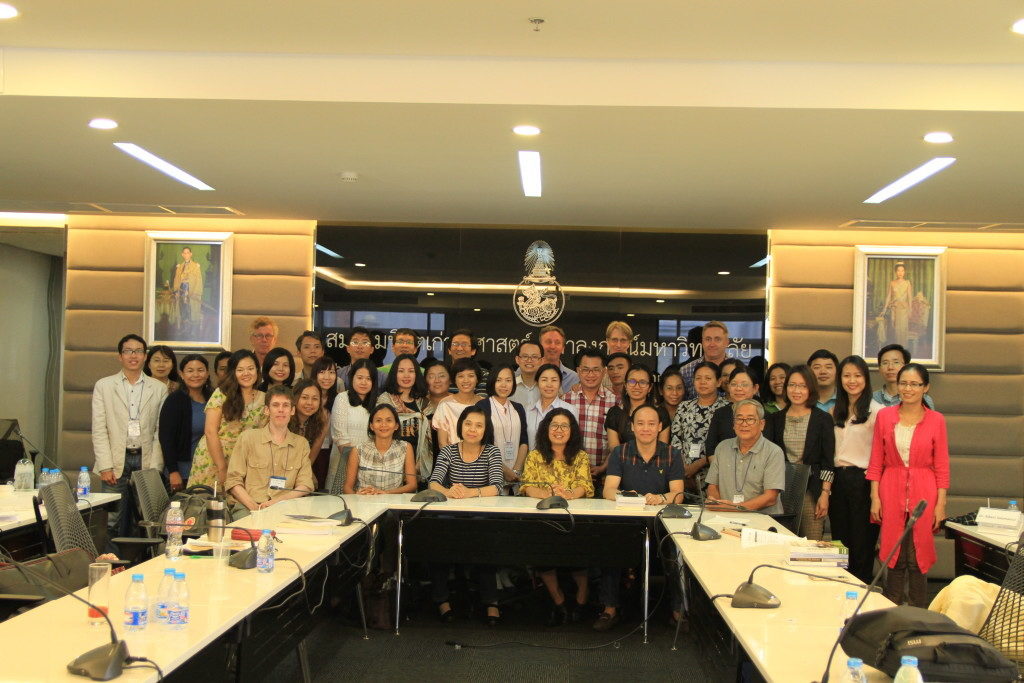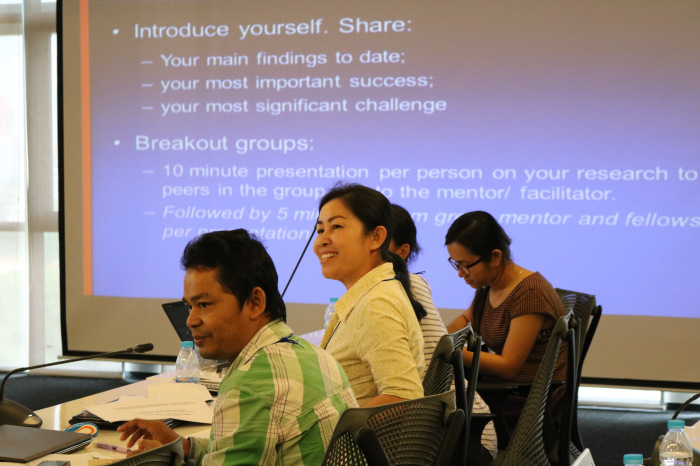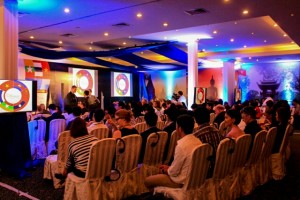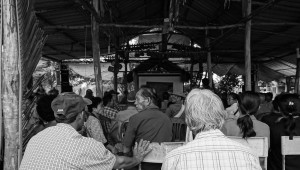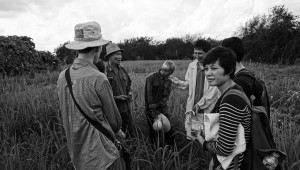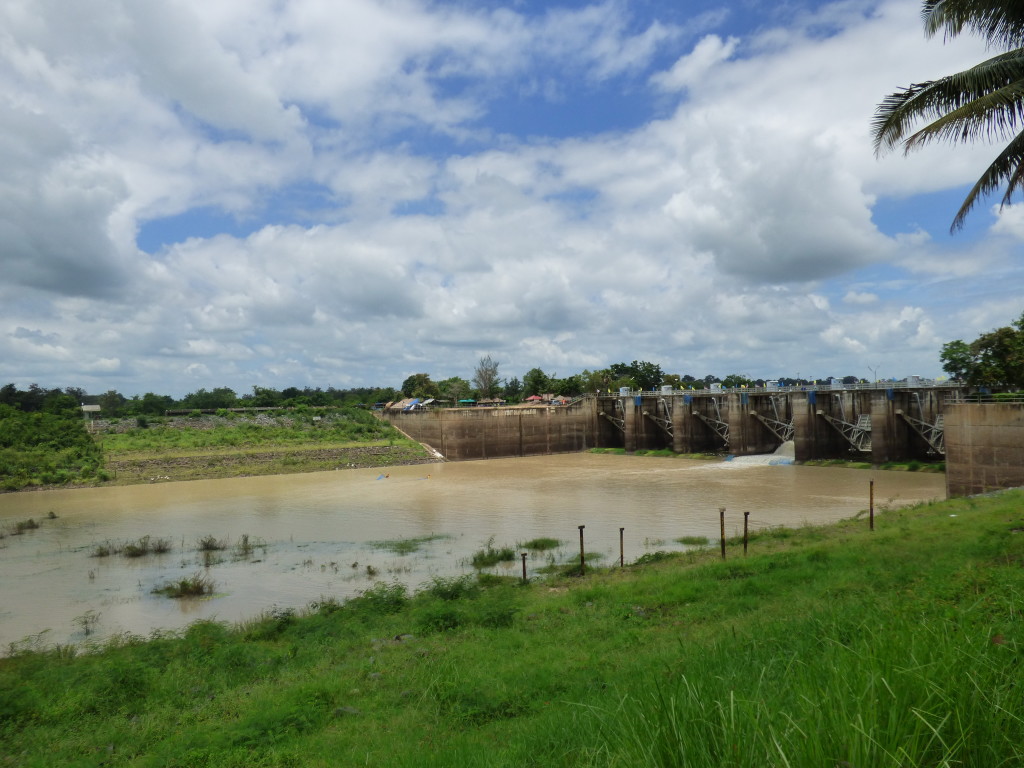Small group discussion at the Salween University Network meeting. Photo: V. Lamb.
The people living in the Salween River Basin, and their voices,have been largely ignored. The up to 10 million people living in the River Basin are continually left out of decision-making processes that will directly impact their livelihoods and futures. But this is changing. I can point to recent civil society and academic research, high-profile research collaborations, and international meetings that aim to attend to the complex ecologies and politics of the Salween River Basin and its challenges, which is much more than when I first joined Salween University Network meetings five years ago.
The most recent Salween University Network meeting was held on January 29-31, 2016,at Chiang Mai University, Thailand with support from the Regional Center for Social Science and Sustainable Development (RCSD), Chiang Mai University, and CGIAR Water, Land and Ecosystems Greater Mekong Program. This meeting was an opportunity to review existing research, and to bring a wide range of actors together to discuss the future of the Salween River Basin. A meeting of this variety is a milestone for the Salween University Network, which has been working since October 2012 to build a network in the Salween River Basin as a way to share research and knowledge between academics, researchers, NGOs, journalists, and local communities.
In fact, prior to this 2016 meeting, there were several meetings organized to draw international and basin-wide attention to the issues affecting the River Basin, in Myanmar in 2014 and in Thailand in 2014 . In October 2012, for instance, I was among a smaller group who met to discuss what to do about the future of the Salween River Basin. During this meeting, discussion revolved around the mega projects planned along the upper Salween River Basin and the downstream impacts, should the projects gain approval, as well as logging and mining in the River Basin. The interest in the future of the Salween River Basin at that time was eye-opening to future possibilities for collaboration. The opportunity to attend a workshop at its early stages of development and watch its progression to now has especially eye-opening for me who, at the time, was a recent master’s graduate in Global Governance. I was witnessing the beginnings of international collaboration and the formation of a basin-wide organization where the emphasis was on inclusive knowledge production. One of the Network’s biggest strengths is that it is composed primarily of a range of actors from the Salween River Basin region, who are working to produce high-quality research on the Basin and who are concerned about future developments of the basin which put residents at risk.
At present, the River Basin is indeed at risk. The mainstream of the Salween River is currently undammed, but that status is being threatened by proposal for 16 large hydropower development projects. The Salween River Basin supports rich fisheries, farmland, and a diverse river landscape. However, high demands for new sources of electricity, especially by Thailand and China, are outweighing and ignoring the needs and voices the region’s people.
A strength of the Network’s meeting was the diversity of the participant’s research presentations. Pai Deetes from International Rivers spoke about the plans to divert water from the Salween River, or the tributaries of the Salween River, to the Chao Phraya River in Thailand. She spoke on the importance of collecting adequate baseline data before projects of this kind are accepted. Pai Deetes also noted that there have been no impact assessments done on the implications of this project and therefore the likelihood of solving drought conditions in Thailand are unlikely. She explained further that
“If the water level lowers further it will cause some species to lose their ecosystems; species and people alike on the river will likely struggle for survival. It is important to study the effects.” (January 2016)
















